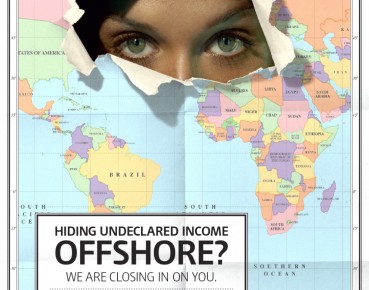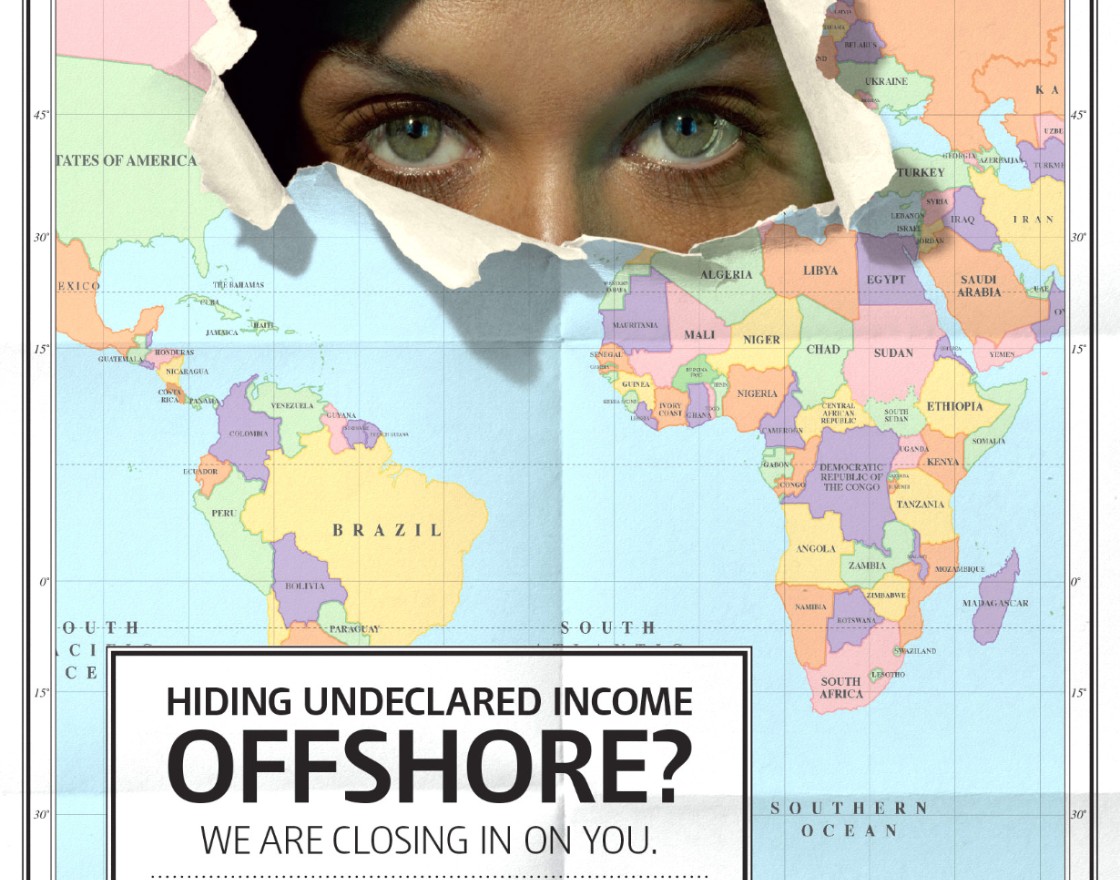Tydzień w gospodarce
Category: Trendy gospodarcze

(H.M. Revenue & Customs, CC BY 2.0)
In Italy, Emanuele Felice, chief economic adviser to the governing Democratic Party, said his party would try to include the proposal on tax avoidance in an update to emergency legislation this month. He is reportedly supported by Luigi Di Maio, the foreign affairs minister from the 5 Star Movement, who said last week there was a need to tackle tax havens.
On April 24th, the European Commission (EC) confirmed that its existing rules allow EU countries to block coronavirus aid from going to companies based in tax havens. “It is up to Member States to decide if they wish to grant state aid and to design measures in line with EU rules and their policy objectives, such as to prevent fraud and tax evasion or aggressive avoidance,” an EC spokeswoman told Bloomberg news agency.
Tax Justice Network claims that every year USD500bn in tax is lost due to multinational corporations “abusing the law to pay less than they owe in tax.” Tax havens are countries that have low or no business taxes. Companies that officially register themselves there often avoid paying business taxes to the countries in which they operate. Among the most egregious havens are Gibraltar, the Bahamas, Andorra, Bermuda, the British Virgin Islands, the Cayman Islands, and Panama.
However, these countries must also comply with the EU free movement of capital rules, which state they “cannot exclude companies from aid schemes on the basis of headquarters or tax residency in a different EU country.” The EU list of tax haven countries includes those that encourage abusive tax practices.
“If you have to write the rules so that you are within the EU laws governing how you support businesses, then you have to use the EU’s black list to make sure that you are within the EU law,” the EC’s spokeswoman said. This means the countries can only block aid from companies based in American Samoa, Cayman Islands, Fiji, Guam, Oman, Palau, Panama, Samoa, Trinidad and Tobago, U.S. Virgin Islands, Vanuatu and the Seychelles. Those countries are on the EU’s list of tax havens.
The fact that the bans are applied only to the EU’s list of tax-haven countries has come under criticism from tax justice campaigners, who argue it doesn’t go far enough to address the issue.
“For years, the corporate tax havens like the British Virgin Islands, the Netherlands and Luxembourg have fueled a race to the bottom, handing over wealth and power to the biggest corporations and taking it away from the nurses and public service workers risking their lives today to protect ours,” said Alex Cobham, CEO of Tax Justice Network. Mr. Cobham told Forbes: “The UK’s tax war hasn’t just put NHS workers at risk — people and health professionals around [the] world have lost vital public funds to the UK’s network of tax havens.” Mr. Cobham’s solution is a shift to a “unitary tax approach that makes corporations pay tax based on where their employees do real work,” and not where their “accountants hide their profits.” He added, “Tax revenues must arise where the real activity is–just as health needs do.”
France plans to block firms registered in offshore tax havens from claiming aid from its government coronavirus bailout, following similar moves by Denmark and Poland. A spokesperson for the French Finance Ministry confirmed that its ban would apply to Anguilla, the Bahamas, Fiji, Guam, the US Virgin Islands the British Virgin Islands, Oman, Panama, American Samoa, Samoa, Seychelles, Trinidad and Tobago, and Vanuatu. Finance Minister Bruno Le Maire said companies either registered in tax havens or controlling subsidiaries in them were ineligible for the EUR110bn, rescue package. Of France’s package, EUR4bn have been reserved for struggling startups, while EUR20bn are being kept for larger firms, such as Air France. „It goes without saying that if a company has its tax headquarters or subsidiaries in a tax haven, I want to say with great force, it will not be able to benefit from state financial aid,” Mr. Le Maire told the France Info radio station. The announcement follows a request for an amendment to the 2020 finance bill from a group of Centrist Union group senators, led by Nathalie Goulet. The amendment sought to exclude „companies whose subsidiaries or establishments are established in states and non-cooperative territories” from getting aid.
On April 8th, the Prime Minister of Poland, Mateusz Morawiecki, said large companies wanting a chunk of his government’s roughly USD6bn bailout fund must pay domestic business taxes. „Let’s end tax havens, which are the bane of modern economies,” he said. Denmark soon after followed suit. „Companies based on tax havens in accordance with EU guidelines cannot receive compensation,” a statement from the country’s finance ministry said. The Danish finance ministry said that firms based in tax havens would no longer be covered by its bailout program. „Companies seeking compensation after the extension of the schemes must pay the tax to which they are liable under international agreements and national rules,” a translation of the statement said. „Companies based on tax havens in accordance with EU guidelines cannot receive compensation, insofar as it is possible to cut them off under EU law and any other international obligations.”
The new restriction applies to firms registered in countries on the European Union’s list of ‚non-cooperative tax jurisdictions’, according to Rune Lund, tax spokesman for the leftist Red-Green Alliance. “When we spend billions of taxpayers’ money on saving companies and jobs, they need to go to that purpose and not get sent to a tax haven on the other side of the world,” Mr. Lund told Reuters. The list, which Mr. Lund said was not comprehensive enough, currently has 12 countries on it including Panama, the Seychelles and the Cayman Islands.
In December last year, Amazon, Facebook, Google, Netflix, Apple and Microsoft were accused of avoiding USD100bn of global tax over the past decade according to Fair Tax Mark research. Facebook paid just USD34.58m in corporation tax in the UK in 2018 despite record sales of USD1.98bn, according to the latest account on the UK’s Companies House.
Mr. Cobham said that corporate tax havens like the British Virgin Islands, the Netherlands and Luxembourg “have fueled a race to the bottom, handing over wealth and power to the biggest corporations–and taking it away from the nurses and public service workers risking their lives today with under-resourced protection to protect ours.”
It is unclear whether other European nations will follow the example of Poland, France and Denmark, but it is unlikely that authorities in the UK, the Netherlands, Ireland, Switzerland, and Luxembourg will do so. All four have provisions making them attractive to businesses that also allow them to be registered offshore.
On the issue of actual member states like Ireland and The Netherlands are acknowledged on the list of tax havens, and not “just the small palmy islands of popular imagination.” Luxembourg, the Netherlands and Ireland are the three EU countries seen to be taking tax revenues from profits made in other countries, through incentives made to house the headquarters of foreign firms. According to the Tax Justice Network the Netherlands reportedly cashes in on EUR8.5bn of corporate tax from other EU countries per year, with France and Italy taking EUR3bn and EUR1.7bn hits respectively.
At the same time the Netherlands is one of the major opponents within the Eurozone to Italy’s joint debt measures for the single-currency area’s coronavirus recovery plan, while Italy is a fierce advocate of a joint response. It’s a point of contention about which Italy’s voters, itching for a vote on EU membership, are all too aware.
In December 2019, a report from The Fair Tax Mark called The Silicon Six and their USD100bn global tax gap, showed how Ireland plays a “central role to the tax avoidance” of Apple, Facebook, Google and Microsoft.
A 2018 research project from the University California and the University of Copenhagen concluded that Ireland was “the biggest tax haven” in the world, with foreign multinationals shifting USD106bn of corporate profits to Ireland in 2015 alone.” In 2017, the effective tax rate in Ireland had reached a new low of 4.9 per cent. Making paying your taxes in Ireland simply good business, for big businesses.,” the report reads.
The UK is described by Tax Justice Network as the “world’s greatest enabler of corporate tax avoidance, responsible for over a third of the world’s corporate tax avoidance risks” through its network of crown dependencies and overseas territories.
Tax justice campaigners fear this could be a cosmetic move that will not address the menace posed by tax havens within the EU, but Mr. Le Maire was keen to stress that Paris would be strict on the tax dodgers.
The main worry is that the definition of a tax haven is too narrow, avoiding European countries with lax rules. Raphael Pradeau, from the campaign group Attac France, argued that Mr. Le Maire’s measures would not, for example, tackle the problem of Renault-Nissan, whose strategic partnership (also with Mitsubishi) is headquartered in the Netherlands, while Renault could benefit from state support.
Researchers from the University of California, Berkeley and the University of Copenhagen found that more than 84 per cent of the revenue Italy loses because of tax havens goes to other European countries, with Luxembourg, Ireland and the Netherlands topping the table, closely followed by Belgium, which they also consider a tax haven.
According to Oxfam, the EU should add Luxembourg, Ireland, the Netherlands, Cyprus and Malta to its blacklist of tax havens. For Oxfam’s EU tax policy adviser Chiara Putaturo, a better condition on the corporate bailout would be “to require public country-by-country reporting, so it would be possible to see where the money goes and whether companies are engaged in tax avoidance practices.”


